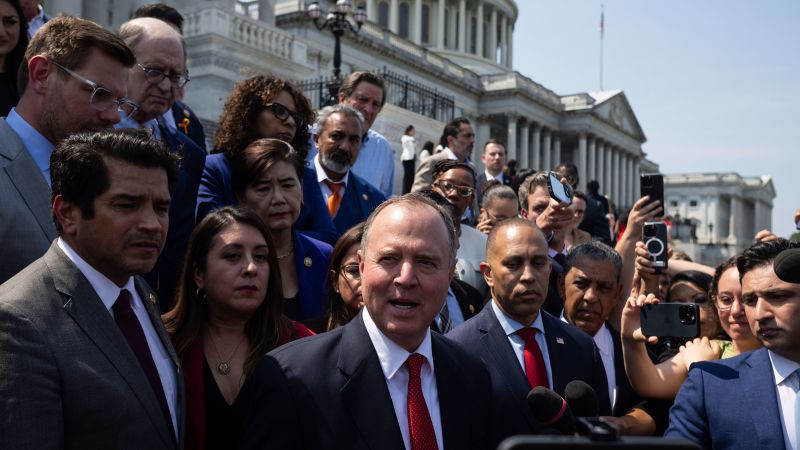The political landscape of the United States remains tumultuous, especially with Donald Trump back in the White House and former Representative Adam Schiff poised to play a significant role in the Senate. Schiff, whose name became widely recognized during the investigations into Trump, has been a consistent thorn in the side of the former president. His leadership as the top Democrat on the House Intelligence Committee during Trump’s first term set the stage for significant investigations revolving around allegations of Russian interference in the electoral process and the controversial withholding of aid to Ukraine, which resulted in Trump’s first impeachment.
Beyond his endeavors during Trump’s first term, Schiff continued to scrutinize Trump’s actions after he left office. He was a prominent member of the House committee investigating the events leading up to the January 6, 2021, Capitol insurrection. These investigations further solidified Schiff’s reputation as a key player in the political drama surrounding Trump and his administration.
With Trump’s re-election bid in full swing, he appears determined to reverse the narrative around his presidency and target Schiff, who is now positioned as a senator. The former president is utilizing federal investigative powers to align the focus on Schiff’s past actions. Recently, FBI Director Kash Patel released declassified notes from past FBI interviews with a former House Intelligence Committee staffer. This staffer initially accused Schiff in 2017 of orchestrating leaks of classified information regarding Trump and Russian involvement in U.S. elections.
These allegations were not new; previously investigated during Trump’s presidency, they had failed to gain traction due to the questionable credibility of the informant. Yet, it seems Trump is taking this opportunity to reignite calls for an investigation led by Attorney General Pam Bondi against Schiff, depicting it as a necessary move to counter what he claims are fabrications by Schiff and other Democrats. Trump has asserted that this alleged hoax orchestrated by Democrats, particularly Schiff, led to considerable harm against him.
Furthermore, the strategy employed by Trump includes a broader campaign against perceived enemies. Schiff is not the only political adversary facing scrutiny; New York Attorney General Letitia James finds herself in a similar predicament after civil actions directed toward Trump. This pattern points towards an administration prepared to use its power against anyone who opposed it, signifying a concerning turn in political rhetoric and action.
One of the most intriguing aspects of Trump’s ongoing feud with Schiff is the latter’s successful transformation into a fundraising powerhouse for Democratic initiatives. Transformative as it may be, Trump’s attacks have propelled Schiff into the limelight, eventually leading him to a successful Senate campaign for the 2024 elections. Schiff has firmly accepted his role as a perennial antagonist to Trump, utilizing defiant speeches to rally support while asserting his resilience against the threats and accusations from Trump, stating that he wears the censure from House Republicans as a badge of honor.
The accusations levied by the former staff member—including claims that Schiff directed his colleagues to leak detrimental information about Trump—have resurfaced in light of new attention. Investigators previously looked into these claims but found the evidentiary support lacking, concluding that the accusations were not credible. However, the narrative seems to have gained renewed vigor within Trump’s circle, potentially being used as ammunition in a broader political conflict.
In a stark display of defiance on national television, Schiff brazenly challenged Trump to “piss off,” reflecting his readiness to confront the allegations head-on. Furthermore, Schiff has enlisted legal assistance from former U.S. Attorney Preet Bharara to prepare for any potential legal battles stemming from these renewed allegations. This indicates Schiff’s anticipatory stance regarding the politically charged environment surrounding the investigations and the continuous engagement from Trump’s camp.
The developments in this ongoing saga reveal much about the current state of American politics. Both Trump and Schiff have their strongholds, and the character of this battle could significantly shape the legal and political landscape leading up to the next electoral season. As investigations continue to evolve and intensify, the ramifications for both figures—and for U.S. politics at large—remain to be seen. The broader implications raise questions about the weaponization of the justice system and the ethical constraints of political interrogations as two centuries of constitutional governance are challenged by contemporary political actors.











